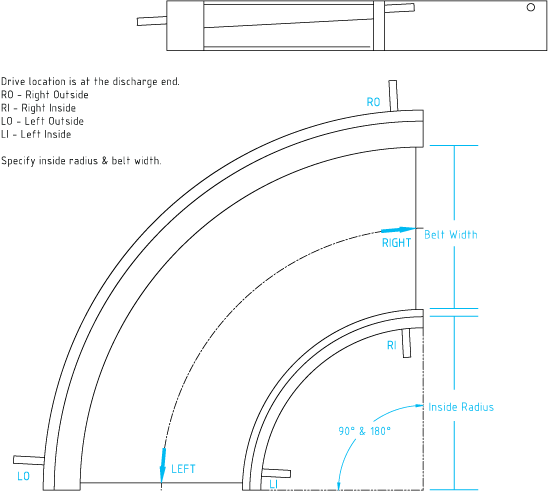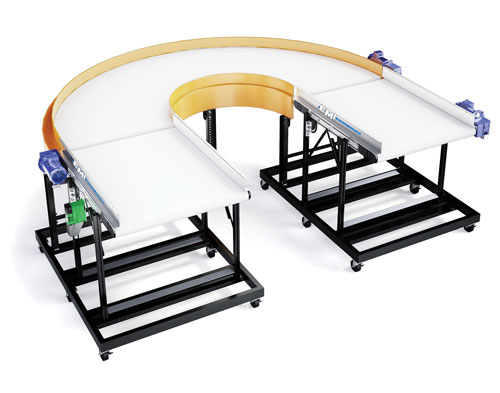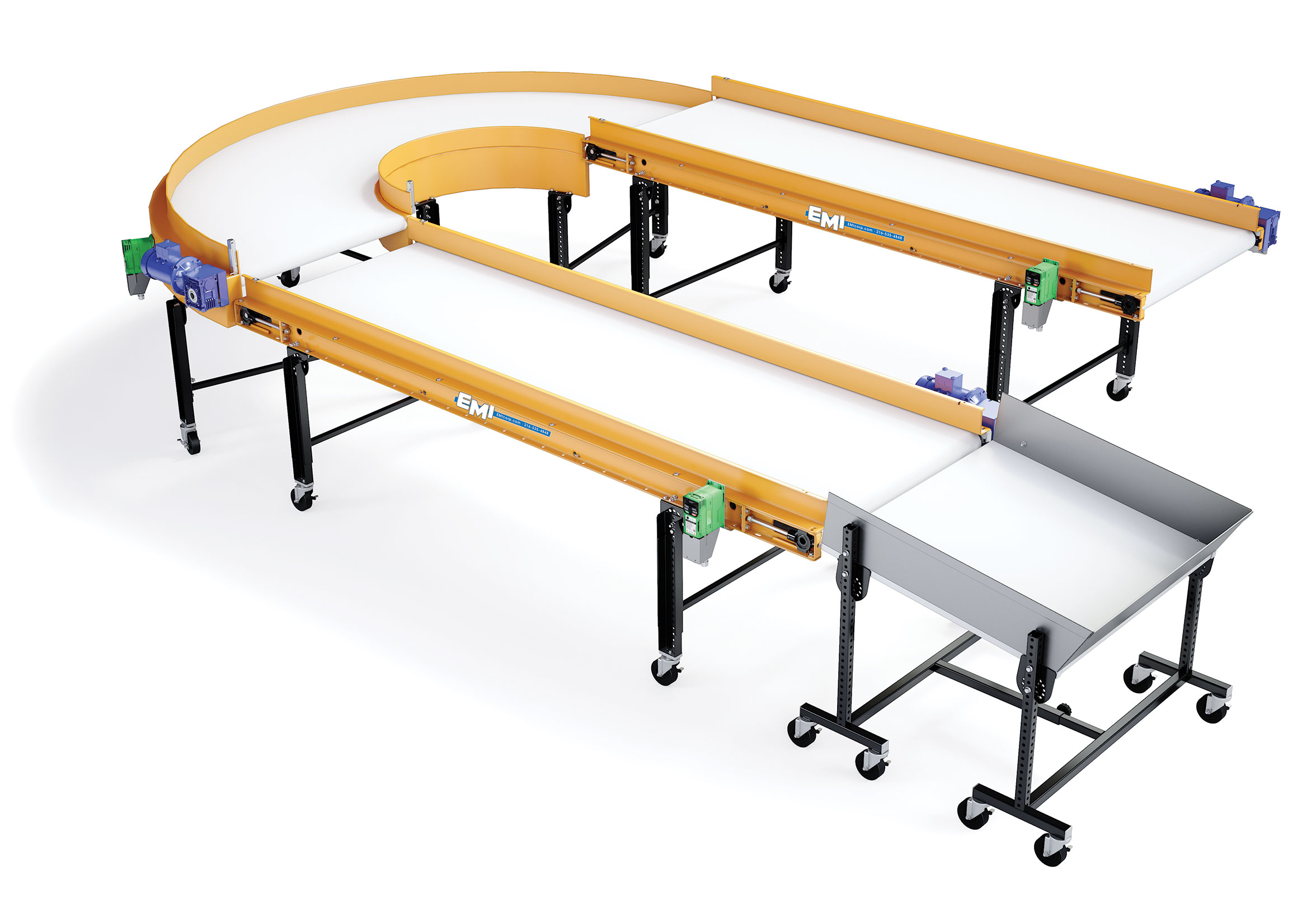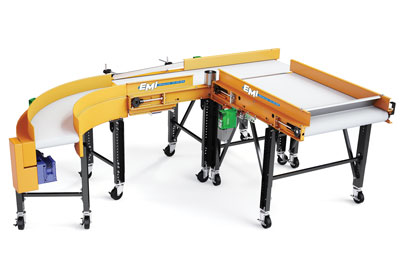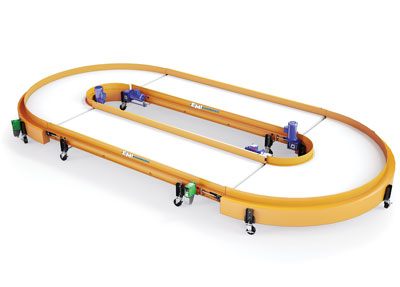S2K Commerce - Shopping Cart
- ${title}
S2K Commerce - Products Dropdown
- ${title}
Web Content Viewer
- ${title}
Conveyor Belt Turn Applications
Belt Turns are most often used to connect one conveyor (or box-filling station, carousel etc.) to another. Belt Turns are an excellent choice when parts need to maintain their original orientation on the belt or if the parts could be damaged by being dropped from one conveyor to another..
Specifications:
- Motor specs based on size of belt turn.
- Load capacity 40 lbs per linear foot.
- 40 FPM belt speed.
- 7-gauge steel construction.
- 15' power cord included. Pre-wired ready-to-run (except polyphase systems which requires some customer wiring).
- 2-ply white Polyurethane belting.
- 6" Outside frame and 5" inside frame.
- 2.5" Pulley diameter.
- Multiple inside and outside radiuses available.
Belt Turn Applications:
Robotic box-packing: Robotic box-packing usually requires parts to be positioned in a specific orientation on the conveyor. Belt turns allow parts to maintain their original belt orientation through any number of direction changes. This is especially helpful when robotically placed parts need to be moved to distant robotic packing stations.
Protect cosmetically delicate parts: Depending upon the size and shape of the part, Belt turns can often be configured to butt directly to the conveyors they are sequenced with. This is an excellent way to allow parts time to cool and stabilize as they move to their final destination.
Prevent tall parts from tipping: Butting a conveyor to a smooth flowing, Belt Turn is an excellent way to prevent tall or unstable parts from falling over as they move through a change of direction.
Incorporate multiple belt turns: Click here to view a belt turn application that uses two belt turns, two conveyors with high side rails and a polycarbonate enclosure.
This configuration is a low cost alternative to powered belt turns.
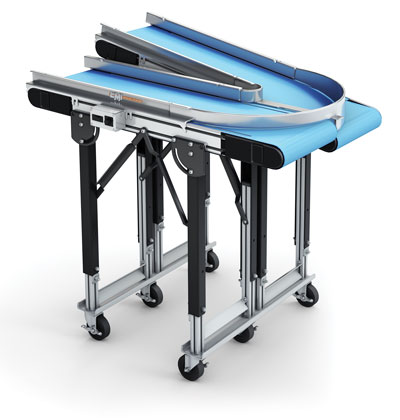
It consists of 2 flat belt conveyors with curved side rails and a transition plate. The parts cascade through the turn. The 2 conveyors are joined together assuring alignment and rigidity.
